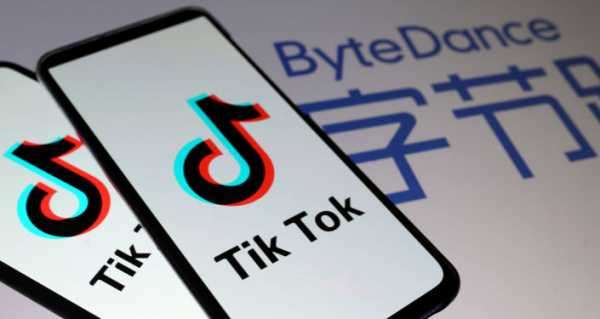
Donald Trump’s recent order will prohibit transactions involving TikTok if its Chinese owner fails to reach a deal to divest from it by mid-September. The management of the wildly popular video-sharing service said in response that it is now exploring legal challenges to Washington’s decision.
President Donald Trump’s executive order targeting China’s TikTok could prevent US app stores from offering the popular short-video app, used by roughly 100 million Americans, and make advertising on the app platform illegal, a White House document seen by Reuters suggests.
It shows that the US government is eyeing disrupting key aspects of TikTok’s operations, like its availability in the digital marketplace and funding, including advertising in the app, as concerns have mounted in the US over the safety of personal data exclusively handled by the video-sharing service.
“Prohibited transactions may include, for example, agreements to make the TikTok app available on app stores … purchasing advertising on TikTok, and accepting terms of service to download the TikTok app onto a user device”, the document, verified by a source familiar with the White House’s decision, reads. The move has been treated across the board as one that would kill the app in the country, despite TikTok considering a transfer to platforms other than Apple Inc and Google’s owner Alphabet Inc’s app stores.
The new revelations come as TikTok and its parent company, ByteDance, are under heavy scrutiny in the US over national security concerns, with the White House eyeing the prospect of the app being sold to an American tech giant, namely Microsoft Corp, thereby enhancing its presence on the social media market. Microsoft employees have notably weighed in on the debate, asserting that such a deal would be “unethical” in all respects.
Washington insists that such a deal must be completed by 15 September or otherwise the popular video-sharing app could be targeted in the country. Trump’s order from last week prohibits transactions with TikTok if its parent company does not reach a deal to divest from it in 45 days, by 15 September.
It did not specify the scope of the ban, stating only that the US Department of Commerce would define precisely which transactions would be barred at the end of the time frame.

U.S. President Donald Trump takes questions during a briefing on the coronavirus disease (COVID-19) pandemic at the White House in Washington, U.S., August 11, 2020
Trump had initially announced he would outright ban TikTok’s Chinese umbrella company from operating in the US over fears that private data could be harvested through the app at Beijing’s behest – something that China as well as TikTok’s management have outright denied.
China’s envoy to the US, Cui Tiankai, insisted that forcing ByteDance to hand over the service to Microsoft violates US free market principles. Beijing went on to warn the US of “consequences” if it opens “Pandora’s Box” with what Chinese officials called “political manipulation” and a crackdown on a Chinese business. TikTok, which is exploring legal challenges to Trump’s order, has said that American user data is safely stored in the US and Singapore, and that it would not hand over such sensitive information to the Chinese government. Regarding the ban, TikTok told advertisers it would continue to honour scheduled ad campaigns and refund any that it cannot fulfil.
The service is reportedly going to file a complaint about the order in the US District Court for the Southern District of California, arguing that it leaves TikTok no time to respond.

Microsoft Corp. logo
Microsoft, for its part, is now looking for ways to swiftly separate TikTok’s technology from ByteDance’s infrastructure so as to alleviate Washington’s concerns about the security of private data, should the deal be finalised.
Sourse: sputniknews.com






